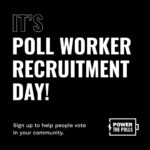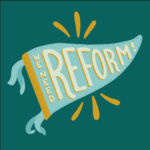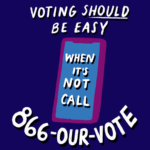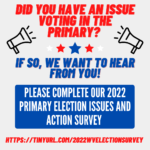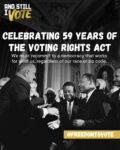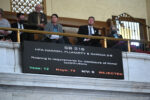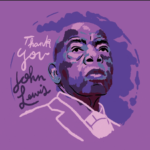- Like
- Digg
- Del
- Tumblr
- VKontakte
- Buffer
- Love This
- Odnoklassniki
- Meneame
- Blogger
- Amazon
- Yahoo Mail
- Gmail
- AOL
- Newsvine
- HackerNews
- Evernote
- MySpace
- Mail.ru
- Viadeo
- Line
- Comments
- Yummly
- SMS
- Viber
- Telegram
- Subscribe
- Skype
- Facebook Messenger
- Kakao
- LiveJournal
- Yammer
- Edgar
- Fintel
- Mix
- Instapaper
- Copy Link
For more information contact Janice Thompson – 503-283-1922
Voter-Owned Election (VOE) Brings People-Powered Politics to Portland
Report on May 2006 Primary Shows System Works
Voter-Owned Elections (VOE) make Portland elections fair, open, and accountable with a more level playing field, less campaign spending, reduced influence of special interests, and new options for genuine participation in politics by typical residents from nearly all city neighborhoods.
“Portland voters said no to big-money politics when they elected Tom Potter, paving the way for Council adoption of Voter-Owned Elections,” said Janice Thompson, executive director of the Money in Politics Research Action Project (MiPRAP). “They said no again in their vote for Erik Sten over a candidate recruited by Portland’s big business elite.”
Even Sten challenger Dave Lister told the Oregonian that he would support Sten over Burdick when a runoff seemed likely because “Burdick’s candidacy is a creation of the Portland Business Alliance.”[1]
The Portland Business Alliance was also the top donor to the failed $350,000 initiative effort to repeal Voter-Owned Elections. “These big money donors are not typical Portland residents,” said Jeremiah Baumann with Oregon State Public Interest Group (OSPIRG). “Voter-Owned Elections replaces a broken system dominated by special interest campaign contributions.”
“The May 2006 primary shows that Voter-Owned Elections is bringing people-powered politics to Portland,” said Jo Ann Bowman, associate director of Oregon Action. “How VOE can increase participation in the political process and the diversity of candidates will continue to grow as use of the reform system expands.”and the diversity of candidates will continue to grow as use of the reform system expands.”
The Friends of Voter-Owned Elections coalition, with key leadership from the League of Women Voters of Portland, Money in Politics Research Action Project, OSPIRG, and Oregon Action, includes more than 30 community organizations. Friends of Voter-Owned Elections released an analysis of Portland’s May 2006 primary, the first to occur under VOE.
Key findings include:
- VOE levels the playing field and allows for evaluation of incumbents on their record rather than fundraising prowess
- “Because of Voter-Owned Elections, campaign spending by incumbents Sten and Saltzman was on par with their challengers” said Janice Thompson, executive director of the MiPRAP. “Voters made their decisions based on the record of incumbents rather than their ability to raise money.”
- VOE matching funds are effective and legal
- “Courts have upheld the constitutionality of matching funds triggered by spending by nonparticipating candidates as well as by independent expenditures,” said Suzanne Novak, Deputy Director of Democracy Programs at the Brennan Center for Justice at NYU School of Law.
- VOE is an incumbent improvement system
- “The League of Women Voters has a long history of monitoring election reform. We have opposed term limits, as we believe citizens, by voting, have the power to remove an incumbent,” said Carol Cushman president of the League of Women Voters of Portland. “But VOE, by giving challengers a more equal playing field, brings more real choices to our elections, thus improving our democratic process.”
- VOE reduces special interest influence
- As a VOE candidate Erik Sten can focus on community concerns without even the perception of undue influence or access provided to campaign contributors. And although Saltzman received private money contributions, he did so at a much lower level than in his previous campaigns. For example, 69 % of contributions to city candidates in 2004 came from only 7 % of the donors in checks of $1,000 or more.[2] Because of Voter-Owned Elections, Saltzman capped his private money donations at $500 and spent less than in previous elections. The special interest link would be completely broken if Saltzman had opted into the VOE system, but the clout of campaign contributions will still be reduced.
- VOE provides new opportunities for genuine participation in politics for typical Portlanders all across Portland
- “Everyday Portlanders can be genuinely involved because of Voter-Owned Elections since a $5 contribution counts the same from a working Portlander as from somebody making $500,000 a year,” said Jo Ann Bowman, associate director of Oregon Action.
- The links below show on a Portland map distribution of 2006 primary private money fundraising and support for Voter-Owned Elections candidates.
Council Position #2 Candidates
Erik Sten – Voter Owned Elections candidate
Ginny Burdick – private money candidate
Dave Lister – private money candidate
Council Position #3 Candidates
Amanda Fritz – Voter Owned Elections candidate
Dan Saltzman – private money candidate with self-imposed contribution limit of $500
Research also indicates that VOE has reduced campaign spending. The report also finds that the qualifying process is suitably difficult, but also identifies the need for more assertive administration.
The full report is available at: http://friendsofvoe.org/files/pdxprimary2006analysisfinal.doc
###
[1]Oregonian, May 17, 2006, Saltzman wins; Sten, Burdick in runoff
[2]Analysis by the Money in Politics Research Action Project.

